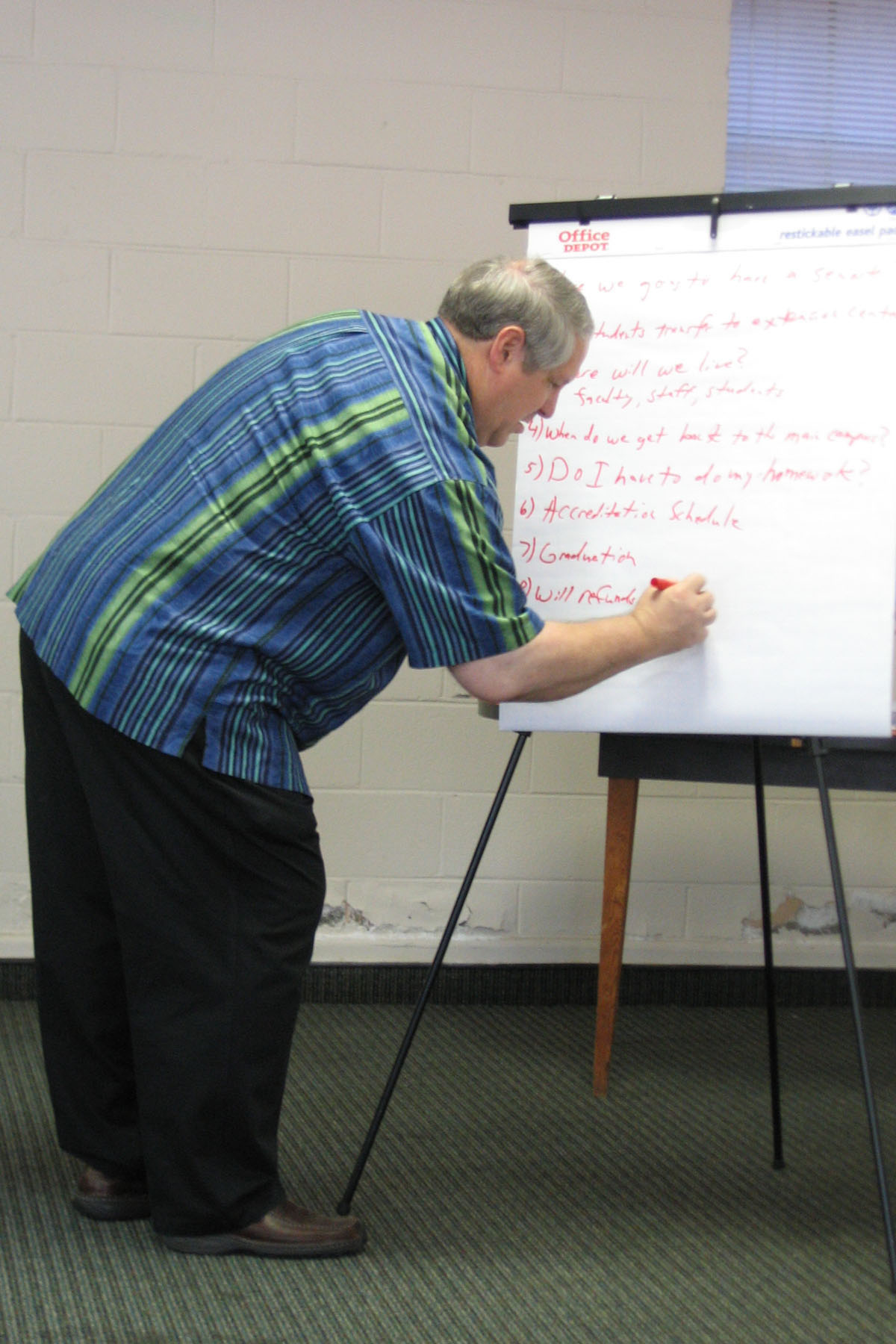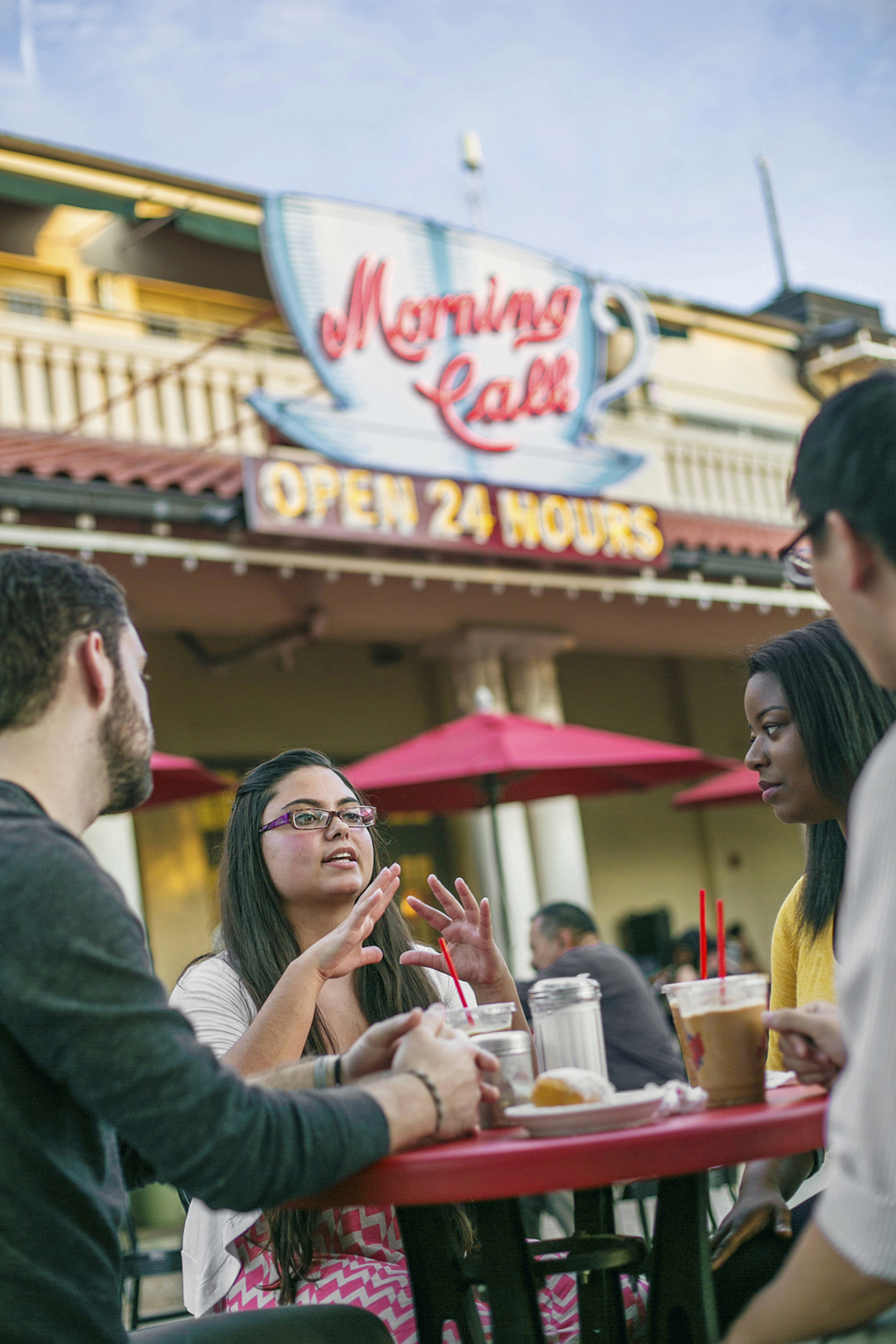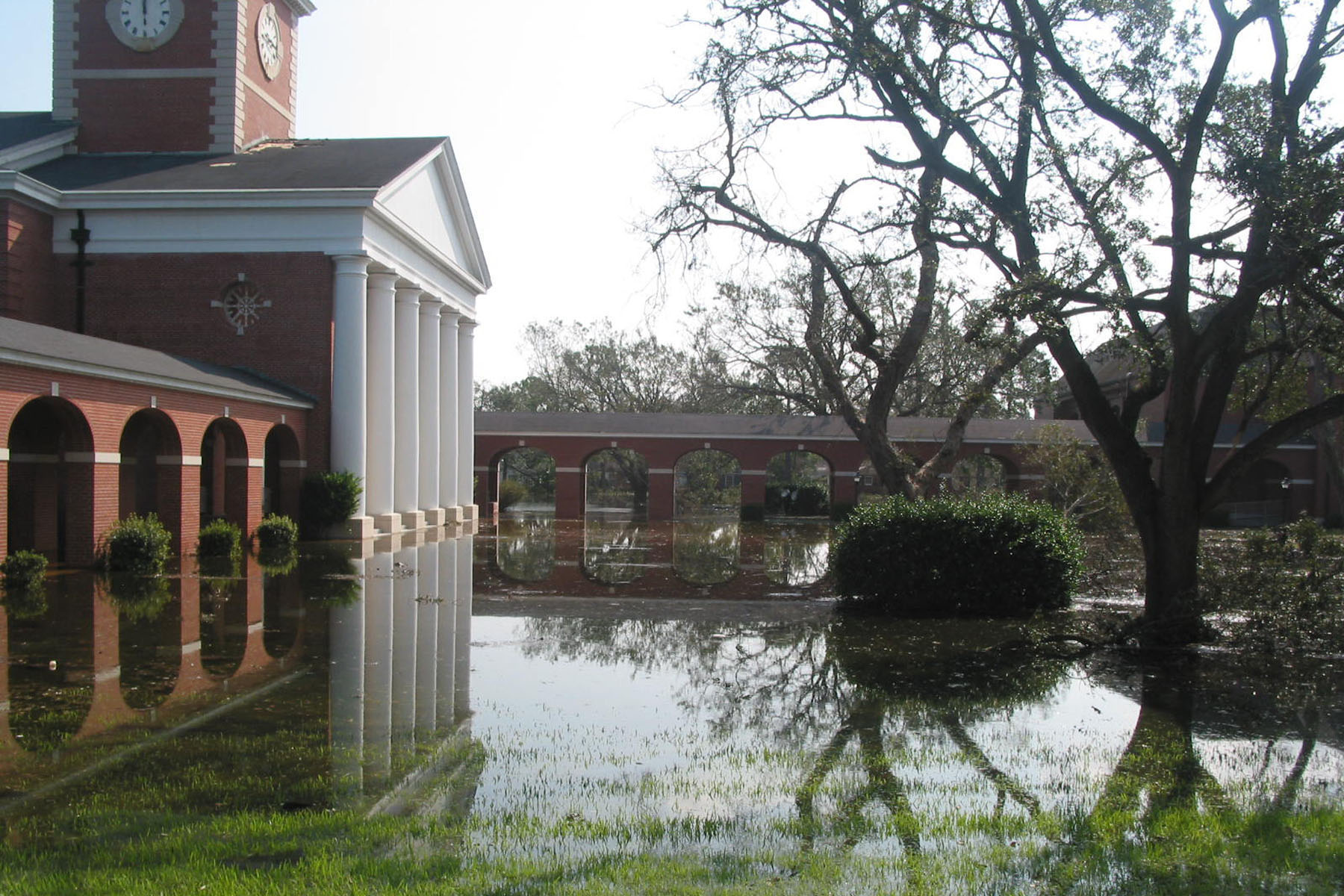
[SLIDESHOW=40939,40941,40942]NEW ORLEANS (BP) — On the 10th anniversary of Hurricane Katrina, New Orleans Baptist Theological Seminary is counting blessings rather than losses and leaning into the future with anticipation.
“We are grateful that God was able to pull out of the rubble of Katrina a city of New Orleans that has more energy and has more vitality than it has had in a very long time,” NOBTS President Chuck Kelley said. “And out of the rubble, the seminary is now strong, healthy and doing well.”
It underscores to Kelley that “we serve an amazing God who delights in doing awesome work to care for His children and to extend the work of His Kingdom.

The future looked much bleaker after Katrina slammed ashore east of New Orleans on Aug. 29, 2005. Levee failures left 60 percent of the campus housing with significant damage. Students were scattered across 29 states; the faculty evacuated to nine states. The task of training ministers was put on hold.
Three days after the storm, NOBTS administrators summoned key faculty and staff members to Atlanta to formulate a recovery plan. Courses were reformulated into an online discussion format and a goal was set to relaunch classes in October. Eighty-five percent of the students who were enrolled at the main campus before Katrina opted to continue their studies online or at one of the seminary’s extension centers that semester.
A call to return
Less than a month after the storm, NOBTS trustees convened in Atlanta on Sept. 26-27 to discuss the seminary’s future. Kelley reviewed the damage with the trustees and presented a plan to restore the campus. New Orleans-area contractor Mike Moskau assured trustees that a full restoration could be completed in time for the 2006 fall semester.
 In their discussions, many trustees expressed the desire to rebuild the New Orleans campus as a “call” from God. With awareness of the monumental task facing the seminary, the board unanimously approved a return New Orleans.
In their discussions, many trustees expressed the desire to rebuild the New Orleans campus as a “call” from God. With awareness of the monumental task facing the seminary, the board unanimously approved a return New Orleans.
“Our trustees looked into the unknown, but they looked at it with the lens of the grace and redeeming power of God and the needs of Southern Baptist churches and the opportunity to reach a broken city,” Kelley said. “And they said, ‘We want to be all in.'”
Financial help poured in from SBC entities, state conventions and individual churches. Early on, the money helped address the human side of the storm, providing financial assistance to displaced members of the NOBTS community. Later, the gifts and volunteer labor helped the seminary offset rebuilding expenses not covered by insurance.
NOBTS began teaching a limited number of classes on the main campus in January 2006, much earlier than expected. These commuter-only classes met in the Hardin Student Center, which was undamaged in the storm. The bulk of the reconstruction took eight months to complete, and the campus reopened in time for residential students to return for the fall 2006 semester. The cost of the rebuilding project swelled to $75 million.
A new day for the Gospel
The city of New Orleans, now on the cusp of its 300-year anniversary, experienced dramatic changes following Katrina. One of the most notable changes, a new openness to the Gospel, can be traced to the Southern Baptists and other evangelicals who poured into the city to help provide relief and recovery.
“There is an openness to our witness that never existed before,” Kelley said. “I don’t know how long we will see this. … It’s already waning some … but there has been an openness to the Gospel in the city of New Orleans that was not present before the storm.”
Responding to the relief needs in New Orleans and the Gulf Coast region in unprecedented numbers, Southern Baptists cleaned and restored homes, listened to heartrending stories of loss and lovingly shared the Gospel. That response, Kelley said, has forever changed the image of Baptists in the city.
The city has experienced an economic and cultural renaissance since Katrina. The movie industry and tech startups have joined tourism as leading economic drivers. The food and music industries are flourishing. Creativity is in the air. The public school system, notoriously underperforming before the storm, is experiencing dramatic reform. This renaissance is bringing young people to the city in unprecedented numbers.
“Millennials are flooding to the city. This is the largest influx of young adults in the history of New Orleans,” Kelley said. “It just feels vibrant.”
The fresh energy in New Orleans has spilled over to the seminary community. In recent years, Kelley has seen students become more engaged in the life of city, looking for innovative ways to have a greater witness for Christ.
“They just aren’t threatened by the city anymore,” Kelley said. “New Orleans is still a challenging place, but it’s a place where a higher percentage of our students become excited about and embrace.”
That has not always been the case. When Kelley was a student 40 years ago, he said it was common for students only to leave the campus for church, to buy groceries and an occasional trip to get coffee and beignets.
“Now there is a general sense of concern, care, respect and love for the city,” Kelley said. “Southern Baptists have always been strong in small towns. We have to learn how to do life and to enjoy life in the urban context in order to reach cities for Christ,” he said. “We are watching the students of NOBTS do exactly that” at a time when reaching the millennial generation is shaping up as one of the greatest challenges in the history of the Southern Baptist Convention.
Challenges & opportunities at NOBTS
While the students who come to the NOBTS main campus in New Orleans are more engaged in the city than ever, Kelley acknowledged that it has become more difficult to get students to move to New Orleans since the storm.
Only part of that can be attributed to Katrina and the difficulties of the urban context. The changing landscape of higher education accounts for much of the shift, Kelley noted. Accessibility, a long-time buzzword at NOBTS, has become the norm in higher education. While NOBTS celebrated the largest enrollment in school history last year, a larger percentage of those students are studying at extension centers and online than ever before.
“Our strategy for pushing seminary training off of the main campus is what prepared us to survive the Katrina experience,” Kelley said. “Katrina was a time machine for the future of theological education. Our once avant-garde strategy is now the mainstream of theological education.”
Kelley doesn’t see residential theological education going away anytime soon, but he believes fewer seminary graduates will earn their degree exclusively on a residential campus. With students tailoring their education to their calling and life circumstances, he said NOBTS will continue to innovate to meet the needs of students and churches.
Funding has been and will continue to be a challenge for NOBTS, Kelley said. The accessibility initiatives are more expensive and receive less Cooperative Program funding within the SBC than traditional models.
“We have to remember that God is the one doing the calling,” Kelley said. “So when people are answering the call of God, we have to figure out a way to train them and prepare them that connects with their calling. God’s call to them is a call to us. We are called to teach them.”
Looking back on the decade of recovery, Kelley remains amazed by God’s “inexhaustible supply of redemption.” His biggest takeaway from the Katrina experience is that no matter what the believer is facing, he or she can put aside fear and trust solely in God.
“Katrina did not take God by surprise nor worry Him about how He would care for me and our seminary, our seminary family, all Baptist work in the city, all the people who stayed,” Kelley said. “Our God is a redeemer, and He is able to take any circumstance we are in and, out of it, bring glory to His name and good to His people.”

















